RES Record Summer 2021
RES Record Summer 2021

We’ve been very busy, please check out our latest Newsletter – the RES Record!

We’ve been very busy, please check out our latest Newsletter – the RES Record!
Domestic fire detection and alarm system standards are outlined in the BS 5839-6:2019, as amended 2020 Code of practice for the design, installation, commissioning and maintenance of fire detection and fire alarm systems for domestic properties.
In this edition there have been some changes to the “Grades” of systems from the previous edition.
The type of domestic premises covered by this British Standard are:
A) designed to accommodate a single family;
B) houses in multiple occupation comprising a number of self‑contained units, each designed to accommodate a single person or family;
C) sheltered housing, including both the dwelling units and the common areas;
D) supported housing.
The recommendations within the standard apply to both new and existing domestic premises with the types of domestic property’s covered include:
– Bungalows,
– Multi-storey houses,
– Individual flats,
– Individual maisonettes,
– Mobile homes,
– Individual sheltered accommodation as well as their common parts,
– Houses in multiple occupation (HMOs),
– Certain NHS housing in the community,
– Mansions,
– Shared houses,
– Houses divided into several self-contained single-family dwelling units.
It also applies to premises used for self-catering holidays if occupied by not more than ten persons, and premises with short-term paying guests in the home of a resident operator with not more than eight guests.
It is limited to premises in which guest accommodation is not located below a ground floor or above a first floor, and in which no storey is greater than 200 m2 in area. For larger premises, the recommendations of BS 5839‑1 apply.
This standard does not to the following property’s:
– Hostels,
– Caravans or boats (other than permanently moored boats used solely as residential premises),
– To the communal parts of blocks of flats or maisonettes.
It does not apply to any premises used for purposes other than as domestic premises (e.g. small shops, factories or similar premises used solely as places of work).
This British Standard breaks the fire alarm and warning systems down into 8 “Grades”.
System grade relates to the engineering aspects of the fire detection and fire alarm system. Higher grades of system tend to provide a greater level of control and monitoring of the system, or greater reliability and availability to perform correctly in the event of fire. The grade of system that needs to be installed depends on the nature of the premises, the level of fire risk and the characteristics of the likely occupants.
Grade A
Grade B
Grade C
Grade D1
Grade D2
Grade E
Grade F1
Grade F2
In the case of Grade D and Grade F systems, where more than one smoke or heat alarm is installed, these normally need to be interlinked.
There are three categories for domestic fire detection and fire alarm systems these categories outline where the detectors/sounders should be installed and level of protection given, the “LD” indicates that the fire detection and fire alarm system is intended for the protection of life.
All domestic premises need to be provided with an appropriate fire detection and fire alarm system, for full coverage a Category LD1 is installed, such a system gives the earliest practicable warning of fire to occupants, wherever ignition occurs.
However, a good level of protection can normally be obtained from a Category LD2 system, in which detection is only provided at points where the fire risk is high or where combustion products would present a significant hazard to life. A Category LD2 system might, for instance, have detectors only in the circulation areas of premises, the living room and the kitchen; other areas might be left without detector coverage. The areas protected by a Category LD2 system include escape routes, i.e. those areas that would be protected by a Category LD3 system.
A Category LD3 system is intended only to protect circulation areas that would be used as escape routes.
Category LD1
So detectors/sounders are typically installed in Hallways, Landings, Living Rooms, Kitchens, Bedrooms, Airing cupboards/Meter cupboards etc
Category LD2
So detectors/sounders are typically installed in Hallways, Landings, Kitchens etc
Category LD3
So detectors/sounders are typically installed in Hallways, Landings etc
This article is intended as a summary guide and is not a substitute for the full Code of Practice of BS 5839 Part 6: 2019, A1:2020. More information can be accessed here:
There are a variety of components that form a fire alarm system – the requirements of fire alarm system are subject to the Regulatory Reform (Fire Safety) Order 2005 and the design and installation of fire alarm systems is subject to British Standard BS 5839-1:2017.
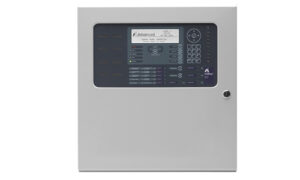
Control panels continuously manage and monitor the fire alarm device circuits and provide power to these circuits. They provide indication of fire alerts, faults and location. Control panels enable the configuration, testing, disablement and triggering of fire alarm signals and devices. Control Panels are usually located in a low fire risk area such as an entrance / exit lobby and should be accompanied by a zone chart.
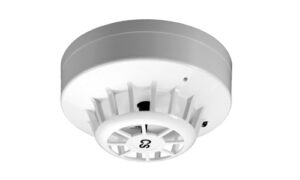
Ionization Smoke Detectors
Ionization chamber smoke detectors detect smoke by the reduction it causes in the current that flows between electrodes in an ionization chamber within the detector.
Optical Smoke Detectors
Optical smoke detectors detect smoke by means of the light scatter that results from the presence of a small light source within the detector.
Optical Smoke Beam Detectors
Optical beam detectors operate by detecting the obscuration of the light source that occurs in the presence of smoke.
Combustion gas detectors are point-type detectors that respond to one (or more) of the gases produced by a fire. For example, carbon monoxide is produced when incomplete combustion occurs as a result of restriction of the amount of oxygen available to support the combustion process.
Flame detectors detect the infrared and/or ultraviolet radiation that is emitted by flame. Both types use radiation-sensitive cells that “see” the fire either directly or through built-in lenses or reflectors.
Heat detectors may take the form of either point type detectors or line type detectors. The detection system may be designed to respond when a fixed temperature is reached. The heat detector may also include a sensor that responds to the rate of rise of temperature. In this case, the detector responds when either the temperature rises at more than a certain rate, or when the fixed temperature is reached.
In a fire detection and alarm system incorporating multi-sensor detectors, each multi-sensor fire detector contains more than one sensor, each of which responds to a different physical and/or chemical characteristic of fire. For example, with a heat and optical multi-sensor detector the optical sensor might be disabled during the day. If this is the case, it is vital that the detectors are spaced for the least sensitive sensor, in this case, heat.
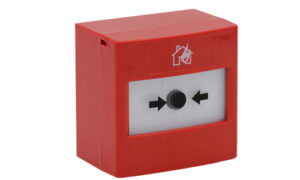
Manual call points or Break Glass call points are a key component of a fire detection and fire alarm system which is used for the manual initiation of an alarm. Manual call points should be sited where they can be easily seen next to premises exit doors but not where they are likely to be exposed to accidental damage. It is recommended that they should be fitted with protective covers to reduce the likelihood of a false activation.
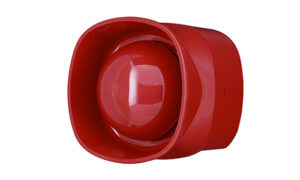
Fire alarm sounders are an audible fire alarm device such as a Bell, Dome Bell, Sirens Solid Sate Sounder and Horn and operate throughout the building to indicate the need for evacuation of the entire building. Traditionally, a sound pressure level of 65 dB(A) has been regarded as the minimum acceptable sound pressure level for fire alarm signals or 75 dB(A) in sleeping accommodation. Also the fire alarm sound level should be a further 10 dB(A) above any ambient noises that may be present in a premises.
Power Supply The power supply for the fire detection and fire alarm system is normally derived from the low voltage mains supply in the building. The mains supply needs to be reliable and capable of supplying the largest load that can be placed on it under normal, fire and fault conditions. The mains supply needs to be backed up by a standby supply that is able to support the system while the fault in the mains supply is corrected.
It is vital that a regular weekly and monthly test to be carried out to ensure that there has not been any major failure of the entire system, or a significant part of the system. For full guidelines please refer to BS 5839-1:2017 Fire detection and fire alarm systems for buildings. Code of practice for design, installation, commissioning and maintenance of systems in non-domestic premises
– A manual call point should be operated during working hours (as the purpose of the test is to familiarise and ensure the occupants of a premises can hear the alarm), at approximately the same time each week.
– A different manual call point should be used each time.
– Voice alarm systems should be tested in accordance with BS5839 Part 8Fire detection and fire alarm systems for buildings. Code of practice for the design, installation, commissioning and maintenance of voice alarm systems
– Any automatically started generator used for the fire detection and fire alarm system should be tested
– Any vented batteries used as a standby power supply for the fire detection and fire alarm system inspected
Fire alarm systems need to be inspected and serviced every Six Months by a competent person. Due to the specialist nature of the work, fire alarm inspections are usually contracted out to a fire alarm service organization such as RES, whose competence can be assured via third-party certification and accreditation.
RES are accredited to British Standard Institute BSI EN ISO 9000, are a BSI Kitemark Licenced Fire Alarm Installer, and have BAFE Accreditation for Fire Detection and Alarm System Modular Scheme SP203 – Part 1. RES are also members of The British Fire Consortium, Fire Industry Association, The Fire Protection Association.
There are eight categories of Fire Detection and Alarm Systems as defined in the British Standard 5839 Part 1 Fire detection and fire alarm systems for buildings. Code of practice for design, installation, commissioning, and maintenance of systems in non-domestic premises. Each category falls under three different type of system.
M – Manual system, no automatic fire detectors so the building is fitted with call points and sounders
L – Automatic Systems intended for the protection of life.
P – Automatic Systems intended for the protection of property.
A fire risk assessment should be carried out to establish which alarm type and category is required for your premises.
Category M – Manual fire alarm system
Category L1 – Maximum life protection automated fire detection and alarm system
Category L2 – Additional life protection automated fire detection and alarm system
Category L3 – Standard life protection automated fire detection and alarm system
Category L4 – Modest life protection automated fire detection and alarm system
Category L5 – Localised life protection automated fire detection and alarm system
Category P1 – Maximum property protection automated fire detection and alarm system
Category P2 – Minimum property protection automated fire detection and alarm system
Category M – Manual fire alarm system
Category M fire alarm systems are common for places of work, such as offices, shops, factories, warehouses and restaurants. Fire alarm systems in this category are manual, where the alarm must be activated by a person using a Manual Call Point. Typical adoption of this category are offices, shops, factories, warehouses and restaurants. A Category M system normally satisfies the requirements of legislation. It is, however, often combined with a Category P system to satisfy the requirements of insurers, as company policy for protection of assets, or to protect against business interruption.

Category L1 – Maximum life protection automated fire detection and alarm system
Category L1 fire detection and alarm systems provide the maximum level of life protection and are often provided in large or complex buildings such as stadiums, hospitals, care homes, shopping centres, large mixed use office blocks as well as sleeping accommodation such as hotels, hostels, student accommodation, houses under multiple occupation. Automatic fire detection is installed in all rooms and areas of the building including roof spaces and voids.

Category L2 – Additional life protection automated fire detection and alarm system
Category L2 fire detection and alarm systems are designed to give an early warning of fire to occupants beyond the room in which the fire originates and provide early detection in areas of high risk. Example areas of high risk include boiler rooms, plant rooms, computer/server rooms and other areas with heavy plant machinery. Typical adoption of this category are factories and medium sized sleeping accommodation residential properties.

Category L3 – Standard life protection automated fire detection and alarm system
Category L3 fire detection and alarm systems provide warning to occupants beyond the room in which the fire originates, enabling occupants to use the escape routes such as corridors and staircases before they become filled with smoke. Automatic fire detection should be installed on all escape routes and in all rooms that open onto an escape route. Typical adoption of this category are medium sized office blocks and commercial buildings with stairs.

Category L4 – Modest life protection automated fire detection and alarm system
Category L4 fire detection and alarm systems provide automatic fire detection within escape routes comprising circulation areas and spaces, such as corridors and stairways. An L4 system would not satisfy the requirements of legislation in buildings in which people sleep. Typical adoption of this category are commercial premises.
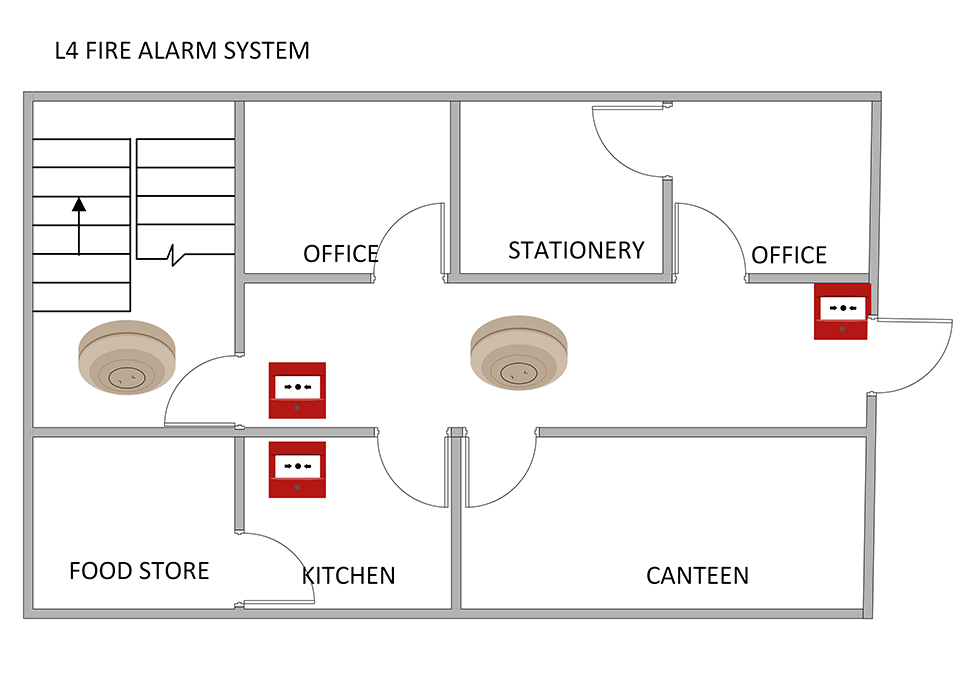
Category L5 – Localised life protection automated fire detection and alarm system
A category L5 fire detection and alarm system is designed specifically from the recommendations of a fire risk assessment. This custom category needs to be specified by a qualified fire engineer usually include automatic fire detection which is installed to meet the occupiers use of the premises.
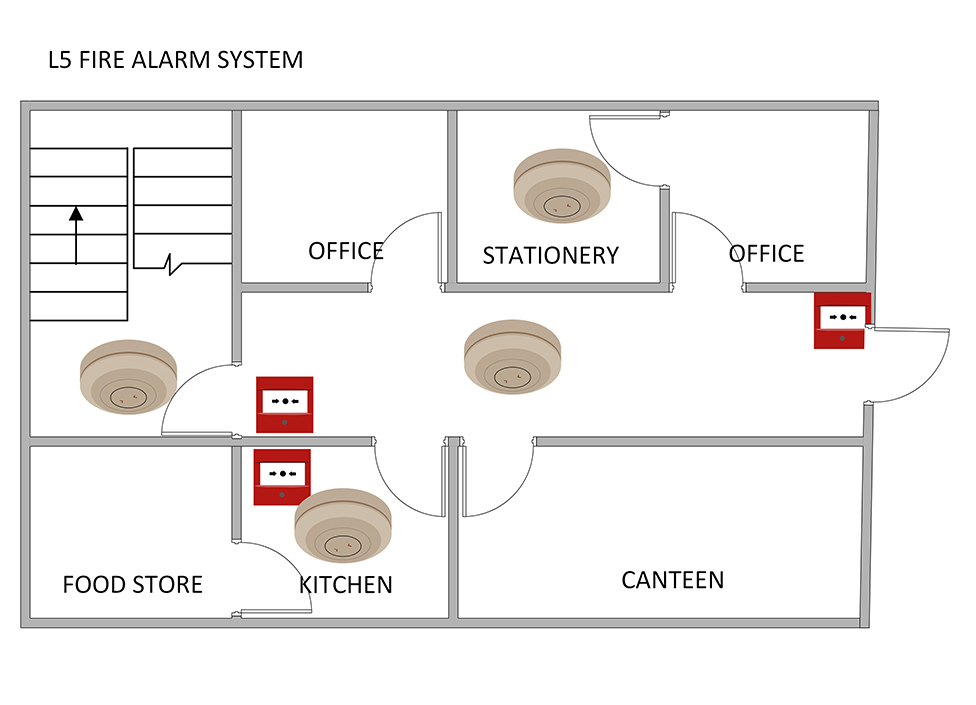
Category P1 – Maximum property protection automated fire detection and alarm system A category P1 fire detection and alarm system protects buildings that are critical to the operation of a business. Maximum protection is provided to the whole site such as having automatic fire detection in all areas of the building, enabling the prompt detection and neutralisation of a potential fire as quickly as possible.

Category P2 – Minimum property protection automated fire detection and alarm system A category P2 fire detection and alarm system protects high risk areas of a building and provides early detection from the most likely sources of a fire and helps to minimize the damage to a property and business.

RES are accredited to British Standard Institute BSI EN ISO 9000, are a BSI Kitemark Licenced Fire Alarm Installer, and have BAFE Accreditation for Fire Detection and Alarm System Modular Scheme SP203 – Part 1. RES are also members of The British Fire Consortium, Fire Industry Association, The Fire Protection Association.
There are generally four main types of Fire Detection and Alarm Systems commonly found in commercial properties
Fire detection and alarm systems are a legal requirement under the Regulatory Reform (Fire Safety) Order for non-domestic premises such as Offices, Shops, Hotels, Public Venues.
Conventional fire detection and alarm systems can be found in smaller premises such as shops and restaurants and are comprised of dividing a building into a number of detection zones in a circuit that are linked to a control panel. If a detector is activated, the control panel will identify the circuit where the detector is located and therefore the zone from which the fire alarm has come. These systems tend to be less expensive to install than other types of fire detection and alarm systems.
Addressable fire detection and alarm systems can be found in larger, more complex premises such as offices, schools, hospitals, hotels, manufacturing facilities. These systems are able to locate a specific detector in the event of an alarm which enables the emergency services to tackle the exact position of the potential fire. An addressable system reduces the risk of false alarms and can also be extended more easily.
Wireless fire detection and alarm systems are suited to premises where it is impractical to run cables throughout a property such as listed buildings. Detectors and call points are connected using radio connectivity. These systems are typically more expensive to buy but are less expensive to install and upgrade than conventional and addressable systems.
Aspirating Smoke Detection and Alarm Systems can typically be found in warehouses and unmanned data rooms. These systems use a fan to draw air from around a building using a network of sampling zones. Precision detectors constantly analyse the air and give warning when it detects smoke particles. These systems are typically more expensive to install due to the network of pipes and air filtration detection required.
RES were recently given expert product training in the Quelfire range of fire stopping products by Fire Containment Specialist Malcolm Williams from Quelfire. The aim of the training is to give installation experts the guidance and know-how on typical applications for fire stopping products.

Malcolm Williams, Fire Containment Specialist, Quelfire
Quelfire is one of the leading manufacturers and suppliers of Specialist Firestopping Products for buildings and is a well-trusted brand that’s renowned for its long-standing commitment to high-quality, certified products, including fire containment systems for pipe, duct and electrical service penetrations.
The RES passive team were provided with an in-depth presentation and demonstration covering the rigorous testing that takes place on the Quelfire products, industry legislation, why passive fire protection is so critical, how the products work and detailed installation guidance.
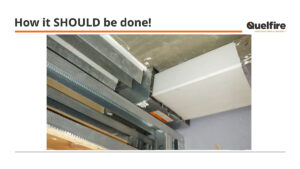
Fire stopping prevents the spread of fire (heat, flames, fumes) and increases the opportunity for safe egress from a building.
It is therefore essential that any Fire Stopping product is correctly installed as per the manufacturers guidance.
Quelfire provide a Fire Stopping System comprising a range of high quality individual products that are tested as a complete system. Their products are tested to current BS and BS EN Standards and are CE Marked as per the Under The Construction Products Regulation (CPR).
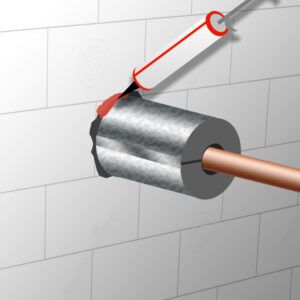
Following on from the training, RES will continue to work closely with Quelfire on all our Fire Stopping projects.
RES provide a range of Passive Fire Protection such as Fire Stopping and Fire Doors and have FIRAS Accreditation.
We cover the South of England including the counties of Middlesex, Essex, Kent, East Sussex, West Sussex, Surrey, Hampshire, Dorset, Wiltshire, Gloucestershire, Berkshire, Oxfordshire, Buckinghamshire, Hertfordshire including London, Brighton, Portsmouth, Southampton, Winchester, Bristol, and the surrounding towns of Aldershot, Basingstoke, Beaconsfield, Bracknell, Cirencester, Egham, Farnham, Guildford, Henley on Thames, High Wycombe, Maidenhead, Marlow, Newbury, Oxford, Poole, Reading, Slough, Staines, St Albans, Staines, Swindon, Watford, Windsor, Woking, Wokingham and Worthing.
New evacuation alert systems are coming onto the market that facilitate the safe and orderly evacuation of buildings containing flats.
In the aftermath of the Grenfell tragedy the fire industry responded with the introduction of a new standard BS 8629:2019. The code of practice for the design, installation, commissioning, and maintenance of evacuation alert systems for use by fire and rescue services in buildings containing flats.
Below are details of two new products that have come to our attention.
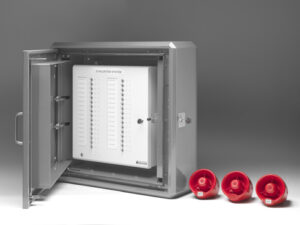
Advanced have brought out the EvacGo – Evacuation Alert System. Advanced have worked closely alongside fire industry experts who wrote the standard to create our BS 8629 solution and are custom manufacturing our EACIE (Evacuation Alert Control & Indicating Equipment) to reflect each individual building’s evacuation zones.
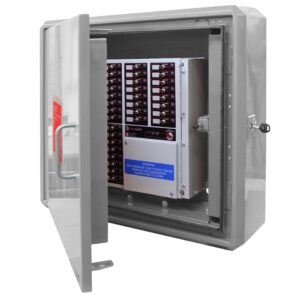
Another solution comes from C-TEC, called the EVAC Alert. This 8629: 2019 compliant evacuation alert system specifically designed to assist the fire and rescue services in evacuating high-rise residential buildings in fire emergencies.
British-built and comprising a range of evacuation alert panels, single and multi-way flat interface units, self-testing evacuation alert sounders and Equality Act-compliant visual indicators and vibrating pillow pads, EVAC-ALERT facilitates the safe and orderly evacuation of buildings containing flats.
Check out the product video here …
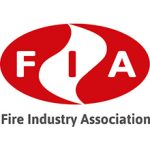
Read the full FIA Guidance on BS 8629:2019
https://www.fia.uk.com/news/guidance-notefia-guidance-document-bs-8629-2019.html
The installation of Evacuation Alert Systems is covered by the BAFE SP207 Design, Installation, Commissioning and Maintenance of Evacuation Alert Systems Scheme.
RES will bring you further updates on this later in the year.
When considering both efficient and compliant management of Asbestos within properties and sites that you occupy, manage, develop, or are looking to acquire, it is important that you carry out the correct type of survey, at the right time and in the right order.
There are different types of asbestos survey, each designed for different scenarios and timelines. Let’s consider a brief overview of each;
Asbestos Management Survey. This is a full inspection and sampling survey of a building, with detailed investigation of every floor, room, basements, roof voids, external fabric and outbuildings. All accessible areas and building components are accessed, however no damage is caused to building fabric or décor. Only accessible Asbestos Containing Materials (ACMs) will be sampled and recorded. Any suspect materials that can be accessed should be sampled for analysis and should not be just presumed to contain asbestos.
 |
|---|
Management Surveys are appropriate for acquisition Due Diligence prior to purchase, and for creating an Asbestos Register for ongoing management of an occupied building or site. While legally required for management of commercial buildings and the communal areas of residential flats, it may also be prudent to consider for a residential purchase to reduce potential risk, both to health and financially.
The building areas should be vacant for the survey, and damage will likely be caused to building fabric to gain the level of access required. For smaller refurbishment projects it is often possible to make good and re-occupy, or even conduct a specifically tailored survey on an occupied building. A good consultant should be able to assess your SoW and advise accordingly on this matter to help you minimise disruption, cost and risk.
Asbestos Demolition Survey. This is a fully intrusive survey carried out in the same way as a Refurbishment Survey. The 2 survey types are collectively known as Asbestos Refurbishment & Demolition Surveys.
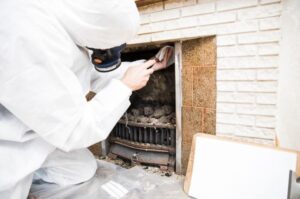 |
|---|
All areas of the building fabric must be fully accessed to identify all ACMs prior to demolition. The building should be vacant, and due to the level of access and damage required it is usually not economical to make good and re-occupy prior to demolition.
Asbestos Sampling Survey. In certain circumstances, for example where an asbestos register is in place but a room or part of the building fabric was excluded, then a sampling survey can be carried out to specifically take samples of suspect materials without conducting a full survey. This approach should be used with care and should not replace a Management or R&D Survey.
Asbestos Re-Inspection Survey. Once ACMs have been identified within a building, the survey report will include an Asbestos Register. This should include details of the type of material, location, asbestos type, finish and condition, along with a Material Risk Assessment (MA) of each ACM and a recommendation on how the material should be treated or managed moving forwards.
The ‘Duty Holder’ in charge of the building should then put in place an Asbestos Management Plan, including a Priority Risk Assessment (PA), which assesses the likelihood that each ACM may be accessed or potentially damaged considering different variables around occupation and use of the building. The combination of the MA and PA will then give the overall Risk Assessment score of each ACM and this in turn will help to manage and prioritise any required remedial actions.
 |
|---|
The Control of Asbestos Regulations 2012 (CAR2012) specifies that ACMs should be inspected annually, primarily to ensure the level of damage has not changed, hence increasing the risk level of that material. This is carried out by means of an Asbestos Re-Inspection Survey in order to maintain ongoing compliance.
Do I only need one survey type? Different surveys can be conducted in sequence to reduce risk while maintaining compliance with the Control of Asbestos Regulations 2012. For example, an Asbestos Management Survey prior to purchase will locate most, if not all ACMs within the building in the majority of cases, thereby significantly reducing risk of unknown costs following acquisition. This survey could also be carried out at the early stages of a development project if the building is still occupied, again to identify ACMs and reduce risk of disruption to the SoW.
Once the building is acquired and/or vacated the survey can then be topped up to an R&D Survey to ensure compliance prior to refurbishment, conversion or demolition. Any ACMs that remain in situ can then be monitored annually by way of a Re-Inspection survey to ensure the Asbestos Management Plan remains up to date and in compliance with the legislation.
The earlier you speak to an asbestos consultant prior to acquisition or while planning proposed works the better. This will ensure that the right surveys can be scheduled at the right time and will save you from headache and undue cost down the line.
Alec Smith BS. AFAAM
Director

If you need any help with Asbestos Surveys and Management then you can get in touch with Artisan at;
Tel: 01329 800650
Email: enquiries@artisanenvironmental.co.uk
Web: www.artisanenvironmental.co.uk
RES are once again supporting Fire Door Safety Week by helping to spread the word on the importance of correctly fitted and maintained Fire Doors.
Everyone can play their part in ensuring a fire door performs as it should, from the manufacturer through to the building users, and this is why the annual Fire Door Safety Week campaign exists.
During the event week we aim to post articles and information in support of our Fire Door services:
For more information about Fire Door Safety Week
https://www.firedoorsafetyweek.co.uk/
https://twitter.com/FDSafetyWeek
https://resfire.co.uk/fire-doors-london-reading/
#FIREDOORSAFETYWEEK
RES Fire Protection Engineers offer help to repair and service/maintain smoke ventilation systems installed within a building. We cover businesses and residential premises across the south of England.
Smoke control/ventilation systems can be divided into natural/passive or mechanical systems.
A natural ventilation system relies on the natural movement of smoke and hot gasses, venting these through an opening. The opening can be a window, vent or a ventilation shaft, these can be permanently open, be manually opened or have an automatic opening mechanism attached to them. Automatic Opening Vents (AOVs) can be opened by actuating arms attached to windows, hatches or doors etc and activated by local smoke detectors which automatically open that vent. The AOVs normally have a local manual back up switch/button (a call point) as well. Once opened/activated the vents allow smoke and heat to leave the building/area, offering a safe means of escape for occupants, with greater visibility and access for fire-fighters.
Natural systems also offer normal ventilation and allow a natural flow of air to enter a building.
Mechanical ventilation systems extract heat and smoke from a building by using mechanical means, fans etc and forced air movement. Mechanical ventilation is normally interlinked with the Buildings Management System (BMS) and incorporates a control panel, secondary power supplies, dampeners that operate to blocking smoke from entering a floor where there is no fire, but opening on the fire floor to allow smoke to leave etc.
Mechanical smoke control systems include Smoke Pressurisation Systems (SPS) these are designed to stop smoke circulating by introducing clean air into the stairwells etc. This increases the air pressure in the stairwell and reduces air pressure in other areas to create safe and clear escape route for building occupants as well as a rescue route for firefighters.
Maintenance of these systems has to not only check each element is intact but that each is talking to the main control systems that govern them.
Smoke control/ventilation systems are a requirement of the Building Regulations.
Our experienced team of engineers can maintain, repair or replace installed smoke control /ventilation systems within a building, including extraction systems for car parking areas.
We work with systems manufacturers and accredited service and maintenance providers to ensure that smoke control/ventilation systems we work on adhere to current legislation and requirement.
We cover the South of England, London, Berkshire, Middlesex, Surrey, Oxfordshire, Hampshire, Buckinghamshire, Hertfordshire, Essex, Kent, West & East Sussex.
© COPYRIGHT 1985-2025 - ALL RIGHTS RESERVED - RES and RES FIRE ARE THE TRADING NAME OF RES SYSTEMS LTD